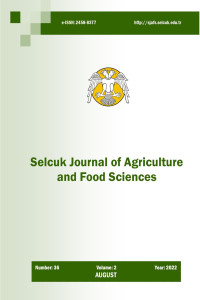Abstract
In the face of climate change, the point of view of existing agricultural production systems is changing, and biological issues are gaining importance in terms of sustainable agriculture. Environmentally friendly biological solutions come to the forefront in the management of diseases and pests that put pressure on sustainable agriculture. It has been proven by many studies that plant growth promoting rhizobacteria (PGPR) have positive effects on plant growth, as well as reduce or prevent viral diseases. However, determining the targeted virus species, the PGPR strains used, or the plant strains tested requires a serious literature review and reading. In this study, which can be considered as a preliminary study, a database of PGPR and plant virus relations literature was created in a dynamic infrastructure that can be constantly updated, and a web interface was developed as an R/shiny application. Thanks to this preliminary study, which has examples in different fields, it is thought that it is possible for researchers to quickly access the literature on the subject, plan costeffective projects, and identify the missing or potential points of the subject. According to the information in the database, it was determined that CMV was the most targeted virus, different strains of Bacillus and Pseudomonas genera were used the most as PGPR agent, tomato (Solanum lycopersicum) and cucumber (Cucumis sativus) were the most tested plant species, and single applications were tested more. It is thought that this and similar studies will enable researchers to gain a quick perspective on the subject, facilitate the management of the information they have acquired, and contribute to effective planning in their new studies.
Details
| Primary Language | English |
|---|---|
| Subjects | Botany |
| Journal Section | Research Article |
| Authors | |
| Publication Date | December 30, 2022 |
| Submission Date | December 6, 2022 |
| Published in Issue | Year 2022 Volume: 36 Issue: 4 |
Cite
Selcuk Agricultural and Food Sciences is licensed under a Creative Commons Attribution-NonCommercial 4.0 International License (CC BY NC).

